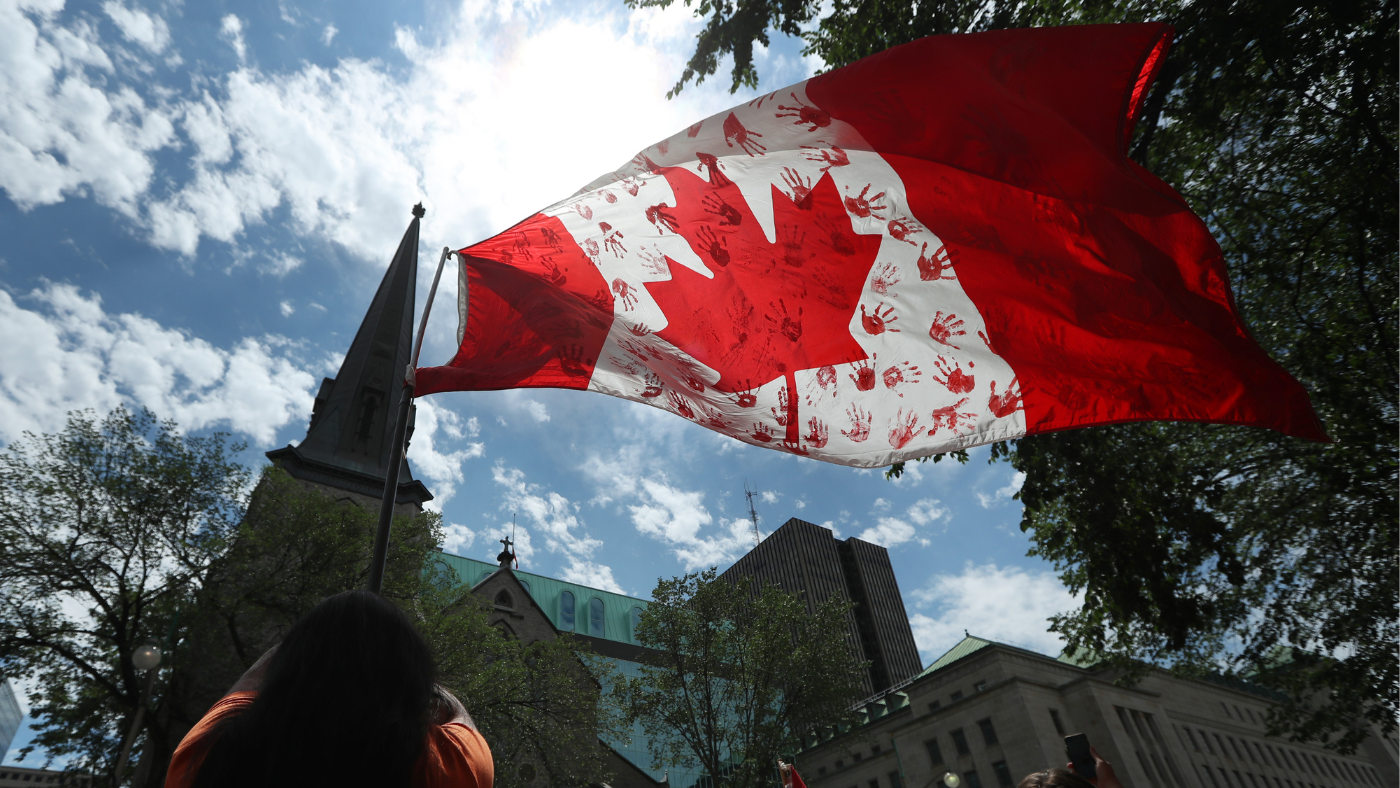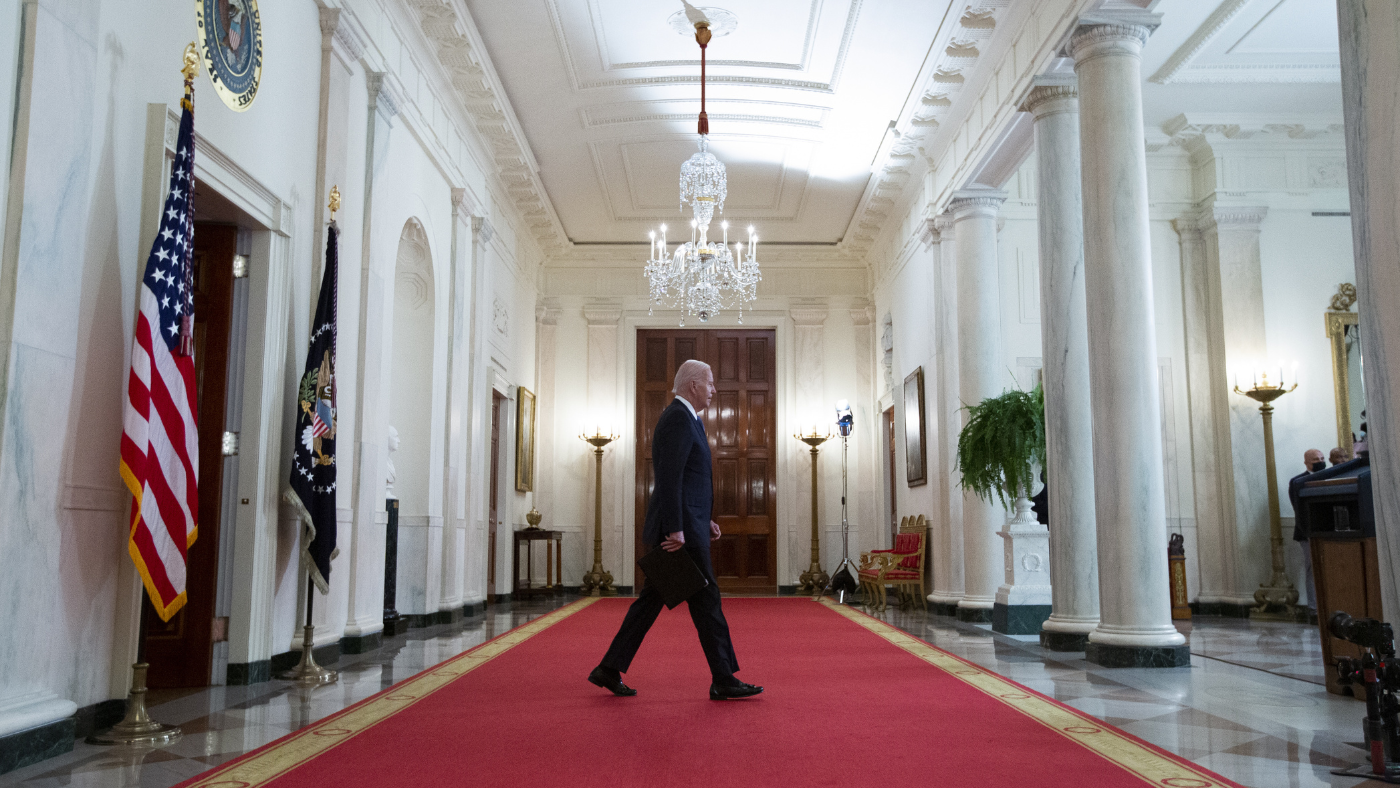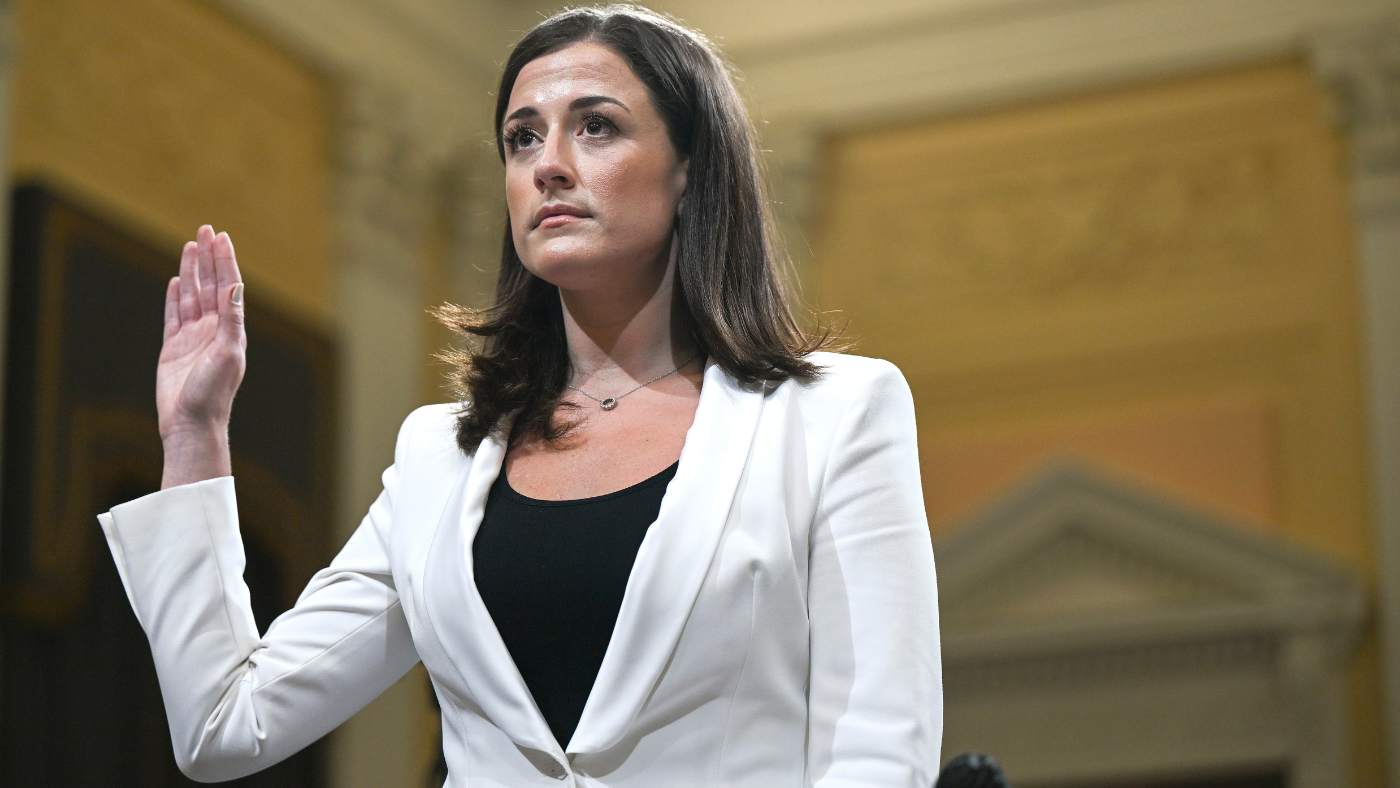‘Shamima Begum is Britain’s problem’
Your digest of analysis from the British and international press

- 1. We don’t have to like Shamima Begum or her cynical ‘glow up’, but we must try to understand her
- 2. Instagram wants to monetise your misery
- 3. Boris Johnson’s bold reshuffle is a show of strength – and a sign of pressure
- 4. The Faroe Island dolphin slaughter is ‘heritage’ that belongs in the past
- 5. Starmer has chosen the New Labour playbook but still lacks a mission
A free daily email with the biggest news stories of the day – and the best features from TheWeek.com
You are now subscribed
Your newsletter sign-up was successful
1. We don’t have to like Shamima Begum or her cynical ‘glow up’, but we must try to understand her
Ayesha Hazarika in The Evening Standard
on reluctant mercy
Shamima Begum’s live interview on Good Morning Britain this week “made for uncomfortable viewing”, said Ayesha Hazarika in the Evening Standard. “I was rather taken aback by what can only be described as a ‘glow up’,” wrote Hazarika. “To see Begum go from a hijab-wearing Islamic State bride to looking like a Love Island contestant” was certainly “bizarre” but it “rammed home the point of the interview”. That is, Begum claims to have “renounced IS and wants to come back to her home, Britain”. Whether you “like or probably loathe” Begum is not the issue. “Begum was born, bred and groomed here,” said Hazarika. “She is our problem.” And “instead of making her a culture war cause celebre, wouldn’t it be more humane and productive to make her part of a much needed and urgent solution”.
The Week
Escape your echo chamber. Get the facts behind the news, plus analysis from multiple perspectives.

Sign up for The Week's Free Newsletters
From our morning news briefing to a weekly Good News Newsletter, get the best of The Week delivered directly to your inbox.
From our morning news briefing to a weekly Good News Newsletter, get the best of The Week delivered directly to your inbox.
2. Instagram wants to monetise your misery
Laura Freeman in The Times
on feeding teenage insecurity
“A leaked memo from Facebook, which owns Instagram, has revealed that the company is fully aware that its photo-sharing platform makes teenage girls unhappy,” Laura Freeman wrote in The Times. “To which I can only reply: is the Pope (8.3 million followers) a Catholic?” Freeman went on: “Among teenagers who reported suicidal thoughts, 13 per cent of British users and 6 per cent of American users traced the desire to kill themselves to Instagram.” The platform may give the usual “soothing shush-shushes about benefits and risks, giving voice to the marginalised, staying connected” but ultimately: “Instagram’s job is to make money.” “It makes you feel lesser so that you want to spend more. Instagram positively wants you to be miserable. Misery it can monetise. It’s credulous to think it has a duty of care.”
A free daily email with the biggest news stories of the day – and the best features from TheWeek.com
3. Boris Johnson’s bold reshuffle is a show of strength – and a sign of pressure
Katy Balls in The Guardian
on driving reform
The significance of this reshuffle lies in “how bold it was”, Katy Balls wrote in The Guardian. “Despite long-held concerns about party management, Johnson did not shy away from difficult decisions,” she continued. And the purpose of the reshuffle was clear: “to drive reform”. While the prime minister is “often criticised for valuing loyalty over competence, the reshuffle was notable for how it challenged that assertion”, she contended. “Those ministers viewed to be the worst performers – such as Williamson, Jenrick and Raab – were shown the door or demoted.” Balls concluded: “As a result of the reshuffle, Johnson has a team he has confidence in to implement the government’s agenda – but the pressure is on to now show he can deliver.”
4. The Faroe Island dolphin slaughter is ‘heritage’ that belongs in the past
Judith Woods in The Telegraph
on wanton destruction
“The seas round Eysturoy churn red with the blood of 1,428 dolphins slaughtered on the beach and the world is looking on in horror,” Judith Woods said in The Telegraph. The Grindadrap – the hunting of pilot whales, dolphins and other sea mammals – “is a fiercely-defended totem of Faroese culture”. Yet on this occasion, even the islanders themselves have condemned the hunt for its “sheer wanton scale”, wrote Woods. While whale hunters may cry hypocrisy, “claiming the only material difference is that they slaughter their meat outside rather than primly hiding the process behind the walls of an abattoir”, most critics are concerned “far more about species rather than surroundings”. As a major drive to bring tourists to the islands gets under way, the Faroese must face the fact that “nobody wants to visit a place where dolphins and whales are speared and stabbed at the shoreline”.
5. Starmer has chosen the New Labour playbook but still lacks a mission
Robert Shrimsley in the Financial Times
on a central problem
“Keir Starmer is haunted by the ghosts of two former Labour leaders; one who is hated by his party and one who was hated by the country,” Robert Shrimsley declared in the Financial Times. But Starmer’s inner circle is filled with those who once served Tony Blair and Gordon Brown, suggesting he has “recognised power can be won only from the centre-ground, by addressing the concerns of mainstream voters rather than the obsessions of party activists”. His move to the centre, however, can “only take him so far”, Shrimsley wrote. He cannot “rehash 1990s policies; the economic landscape has changed. He must show how his values will be applied to the public’s fears”. And Starmer “talks of a cost of living crisis, of more rights for workers. But these must fit a wider narrative, perhaps of economic security and opportunity in an era of technological change.” Ultimately, “before voters choose a new knight, they must see a new dragon”.
-
 The ‘ravenous’ demand for Cornish minerals
The ‘ravenous’ demand for Cornish mineralsUnder the Radar Growing need for critical minerals to power tech has intensified ‘appetite’ for lithium, which could be a ‘huge boon’ for local economy
-
 Why are election experts taking Trump’s midterm threats seriously?
Why are election experts taking Trump’s midterm threats seriously?IN THE SPOTLIGHT As the president muses about polling place deployments and a centralized electoral system aimed at one-party control, lawmakers are taking this administration at its word
-
 ‘Restaurateurs have become millionaires’
‘Restaurateurs have become millionaires’Instant Opinion Opinion, comment and editorials of the day
-
 Boris Johnson shocks UK by resigning from Parliament
Boris Johnson shocks UK by resigning from ParliamentSpeed Read
-
 Bees delay flight for three hours
Bees delay flight for three hoursfeature And other stories from the stranger side of life
-
 ‘The UK’s malaise will not end with the Prime Minister’s exit’
‘The UK’s malaise will not end with the Prime Minister’s exit’Instant Opinion Your digest of analysis from the British and international press
-
 ‘Police tactics are not getting worse, they are simply being filmed’
‘Police tactics are not getting worse, they are simply being filmed’Instant Opinion Your digest of analysis from the British and international press
-
 ‘G7 leaders missed a golden opportunity’
‘G7 leaders missed a golden opportunity’Instant Opinion Your digest of analysis from the British and international press
-
 ‘It takes some soul searching to celebrate Canada Day’
‘It takes some soul searching to celebrate Canada Day’Instant Opinion Your digest of analysis from the British and international press
-
 ‘Breakthrough on abortion rights could be there if Biden reaches for it’
‘Breakthrough on abortion rights could be there if Biden reaches for it’Instant Opinion Your digest of analysis from the British and international press
-
 ‘If only Mark Meadows had even half Cassidy Hutchinson’s courage’
‘If only Mark Meadows had even half Cassidy Hutchinson’s courage’Instant Opinion Your digest of analysis from the British and international press